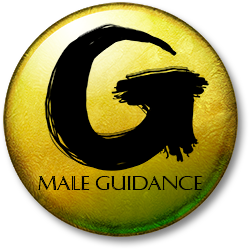
When Your Body is Calling for More Nutrients
Our bodies are complex machines that require a wide range of nutrients to function optimally. From the energy we need to power through our days to the essential functions of our organs, nutrients play a vital role. However, with today’s fast-paced lifestyle and abundance of processed foods, it’s not uncommon to fall short on essential nutrients. This blog post explores the various ‘red flags’ or signs that your body might be signaling a need for more nutrients.

1. Constant Fatigue and Low Energy
If you’re getting enough sleep but still feeling constantly tired, it could be a sign of nutritional deficiencies. Iron deficiency, in particular, can lead to anemia, which is often characterized by chronic fatigue because iron is essential for transporting oxygen in your blood.
2. Hair Loss and Skin Changes
Your skin and hair can tell a lot about your nutrition. If you notice increased hair shedding, it could be due to a lack of protein, iron, or other nutrients. Similarly, skin that’s dry, flaky, or itchy can be a sign that you’re not getting enough essential fatty acids, vitamins, or minerals.
3. Brittle Nails
Like hair and skin, your nails can also give clues about your health. Brittle, ridged, or spoon-shaped nails can indicate deficiencies in vitamins and minerals such as vitamin B, iron, or zinc.
4. Mood Swings and Mental Health Issues
Nutrient deficiencies can impact your mental health. Low levels of vitamins D, B12, and omega-3 fatty acids are linked to mood swings, depression, and anxiety.
5. Poor Immune Function
If you find yourself catching colds or infections frequently, it might be due to insufficient nutrient intake. Vitamins A, C, D, and E, along with minerals like iron and zinc, are crucial for maintaining a strong immune system.
6. Poor Night Vision or White Spots on Eyes
Vitamin A is essential for eye health. A deficiency can lead to poor night vision, dry eyes, or noticeable white spots on the eyes.
7. Dental Problems
Bleeding gums, frequent cavities, or weak tooth enamel can be linked to deficiencies in vitamins C, D, and K, as well as minerals like calcium and phosphorus.
8. Slow Healing of Wounds
If your wounds or bruises take longer than usual to heal, it may be due to a lack of essential nutrients like vitamin C, zinc, and protein, which play vital roles in wound healing.
How to Address Nutrient Deficiencies
- Eat a Balanced Diet: Focus on a diet rich in fruits, vegetables, whole grains, lean proteins, and healthy fats.
- Consider Supplementation: In some cases, dietary supplements may be necessary, but it’s important to consult with a healthcare provider first.
- Regular Check-ups: Regular health check-ups can help identify nutrient deficiencies early.
- Mind Your Gut Health: Good digestion and gut health are crucial for nutrient absorption.
Conclusion
Listening to your body’s signals is crucial for maintaining good health. Nutritional deficiencies can manifest in various ways, and being aware of these ‘red flags’ is the first step in addressing them. By nurturing your body with the right nutrients, you can improve your overall health and wellbeing. Remember, a nutrient-rich diet is not just about preventing deficiencies; it’s about creating a foundation for a vibrant, healthy life.











